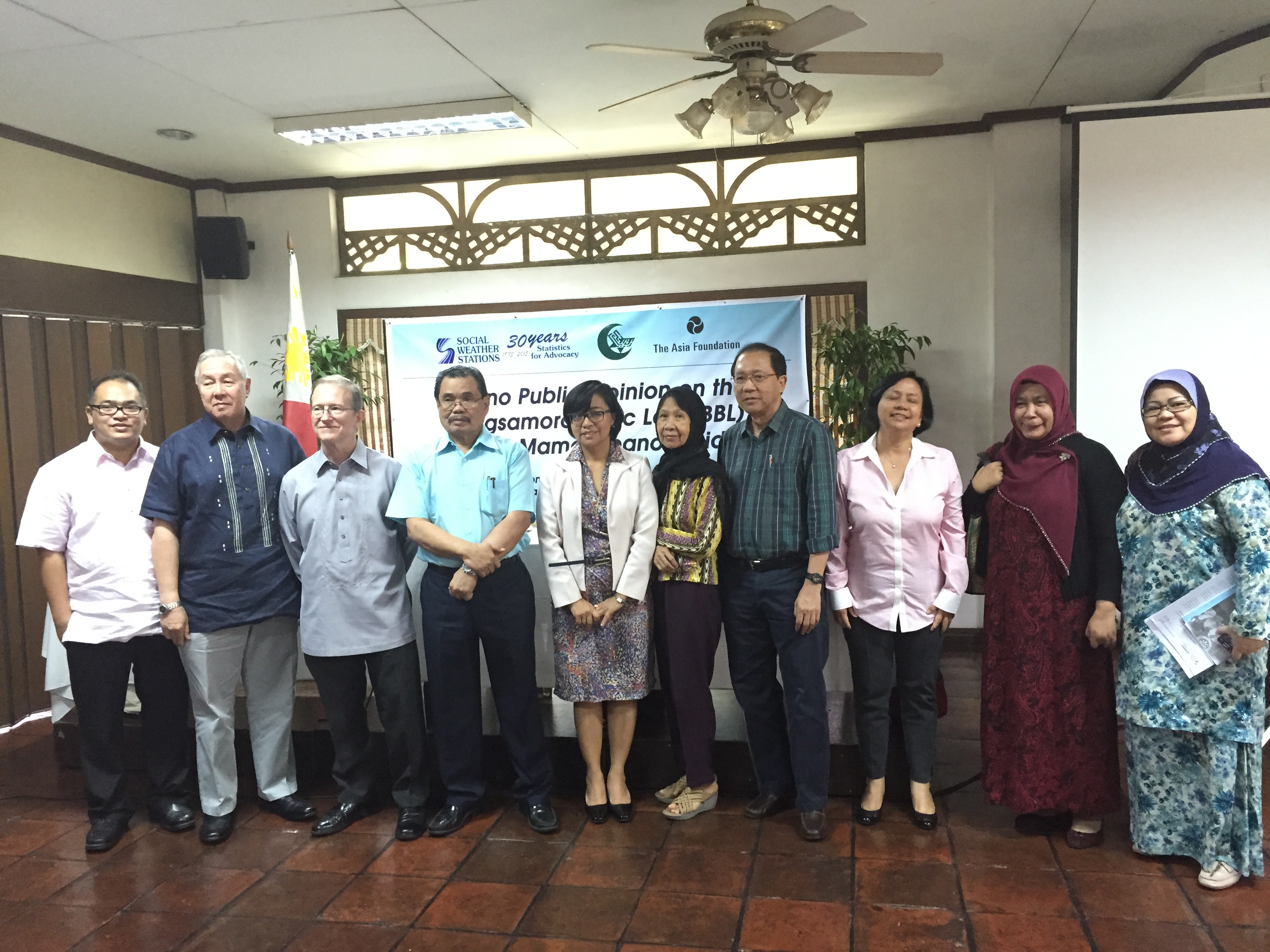 Professor Eduardo Tadem of the UP Asian Center was
Professor Eduardo Tadem of the UP Asian Center was
part of a panel of reactors
at a public forum, "Filipino Public Opinion on the Bangsamoro Basic Law (BBL) and the Mamasapano Incident," which was held on 15 May 2015 at the Balay Kalinaw Conference Hall, University of the Philippines Diliman. During the forum, the Social Weather Stations and the Asia Foundation presented the findings of its survey on the Bangsamoro Basic Law, the Mamasapano incident in January 2015, and other related topics.
The survey measured several indicators, including but not limited to Filipinos' knowledge of and sentiments on the Framework Agreement on the Bangsamoro (FAB), the annexes, and the proposed Bangsamoro Basic Law (BBL). It also determined attitudes and perceptions toward implementation of Shari'ah in the proposed Bangsamoro territory, and preferences for collective and consultative leadership and decision-making in the region.
Respondents were also asked about the reduction of AFP troops in Mindanao, about the notion and discourse of Bangsamoro identity, about their (dis)approval for the BBL, and about the sincerity of the Philippine Government and Moro Islamic Liberation Front (MILF) in complying with agreements. The survey also measured the extent of Filipinos' trust in the MILF and their perceptions and knowlege of Islam. For other indicators and more detailed information the survey, read the SWS press release or download the findings as a PDF.
Professor Tadem spoke about how the survey's findings foreground the contradictory discourses of the
"
Good
Moro"
and the "
Bad Moro
"
. He noted how the
perception of
a
"
Good Moro
"
— one who is peace-loving
,
non-confrontational and acquiescent — was pervasive while the peace process between the Philippine Government and the MILF was
going well. The
notion of the
"
Bad Moro
"
on the other hand surfaced in the aftermath of the Mamasapano and represents
the supposedly
violence-
prone
and noncompromis
ing Moro. On another plane, the "Good Moro" is one willing to be integrated into the mainstream of
the dominant Filipino polity while, on the other hand, the "Bad Moro" asserts the right to self-determination based on a distinct national identity.
Professor Tadem also suggested comparing the findings with other similar processes and conflicts in Asia,
particularly
Aceh in Indonesia. Professor Tadem (4th from right) specializes on, among other fields, the political economy of Mindanao. He was joined as reactors by Miriam Colonel-Ferrer, Jorge Tigno, Mohagher Iqbal, and Carmen Abubakar. The Social Weather Stations and the Asia Foundation conducted the survey and tapped the UP Institute of Islamic Studies to organize the forum.
The Asian Center offers M.A. degrees in Asian Studies with four fields of specialization: Northeast Asia, Southeast Asia, South Asia, and West Asia. The Center also has an M.A. program in Philippine Studies that allows students to major in Philippine society and culture, Philippine foreign relations, or Philippine development studies. The Center offers a Ph.D. program in Philippine Studies in conjunction with the College of Arts and Letters and the College of Social Sciences and Philosophy. For an overview of these graduate programs, click here. The Asian Center also publishes Asian Studies: Journal of Critical Perspectives on Asia, the latest issue of which can be downloaded at the journal's website. For other news and upcoming events at the Asian Center, click here.

